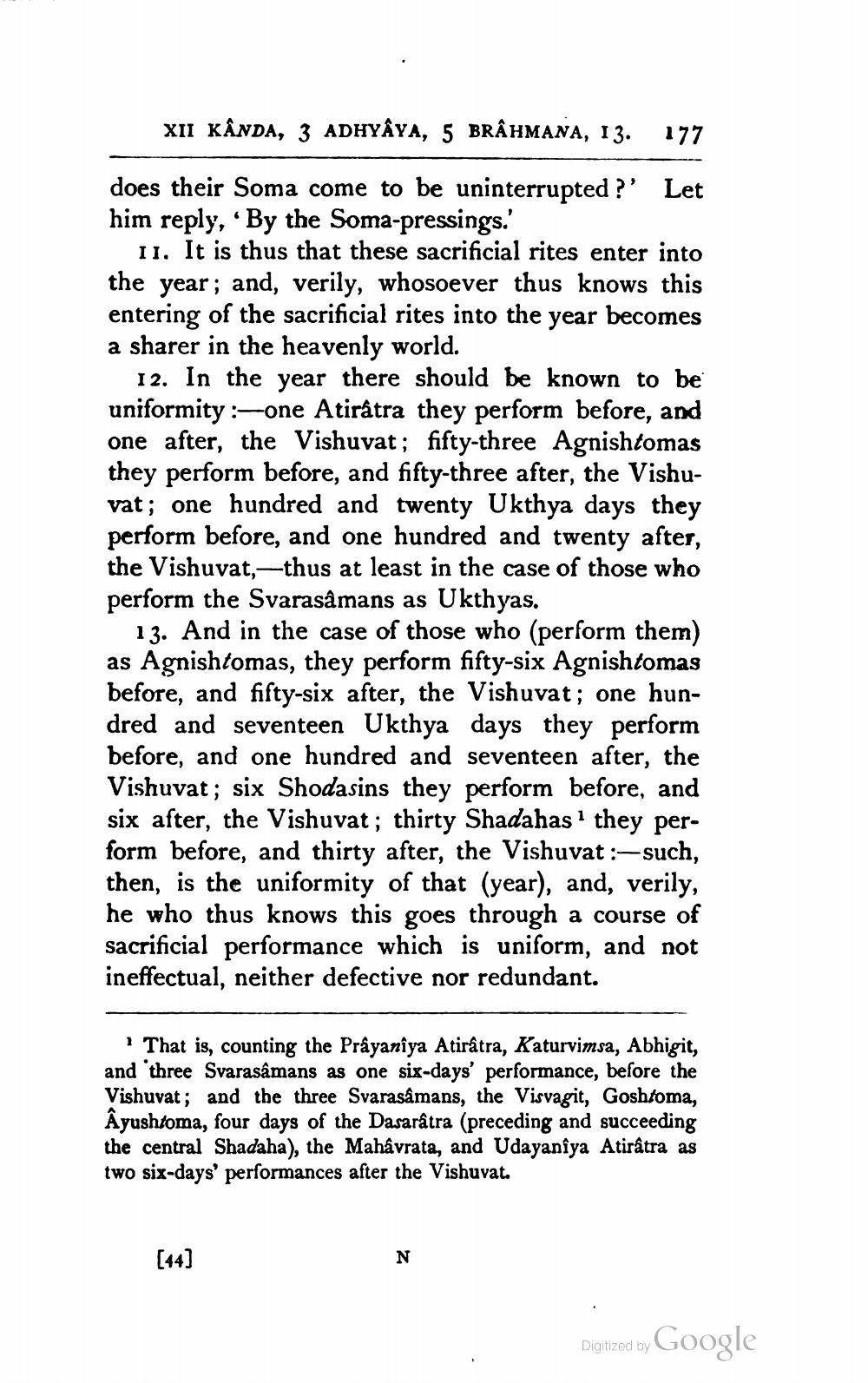________________
XII KÂNDA, 3 ADHYÂYA, 5 BRÂHMANA, 13.
177
does their Soma come to be uninterrupted ?' Let him reply, ‘By the Soma-pressings.'
11. It is thus that these sacrificial rites enter into the year; and, verily, whosoever thus knows this entering of the sacrificial rites into the year becomes a sharer in the heavenly world.
12. In the year there should be known to be uniformity :-one Atirâtra they perform before, and one after, the Vishuvat; fifty-three Agnishtomas they perform before, and fifty-three after, the Vishuvat; one hundred and twenty Ukthya days they perform before, and one hundred and twenty after, the Vishuvat,—thus at least in the case of those who perform the Svarasâmans as Ukthyas.
13. And in the case of those who (perform them) as Agnishtomas, they perform fifty-six Agnishtomas before, and fifty-six after, the Vishuvat; one hundred and seventeen Ukthya days they perform before, and one hundred and seventeen after, the Vishuvat; six Shodasins they perform before, and six after, the Vishuvat; thirty Shadahas they perform before, and thirty after, the Vishuvat:-such, then, is the uniformity of that (year), and, verily, he who thus knows this goes through a course of sacrificial performance which is uniform, and not ineffectual, neither defective nor redundant.
"That is, counting the Prâyanîya Atirâtra, Katurvimsa, Abhigit, and three Svarasamans as one six-days' performance, before the Vishuvat; and the three Svarasamans, the Visvagit, Goshtoma, Âyushtoma, four days of the Dasarâtra (preceding and succeeding the central Shadaha), the Mahâvrata, and Udayanîya Atirâtra as two six-days' performances after the Vishuvat.
[44]
Digitized by Google




